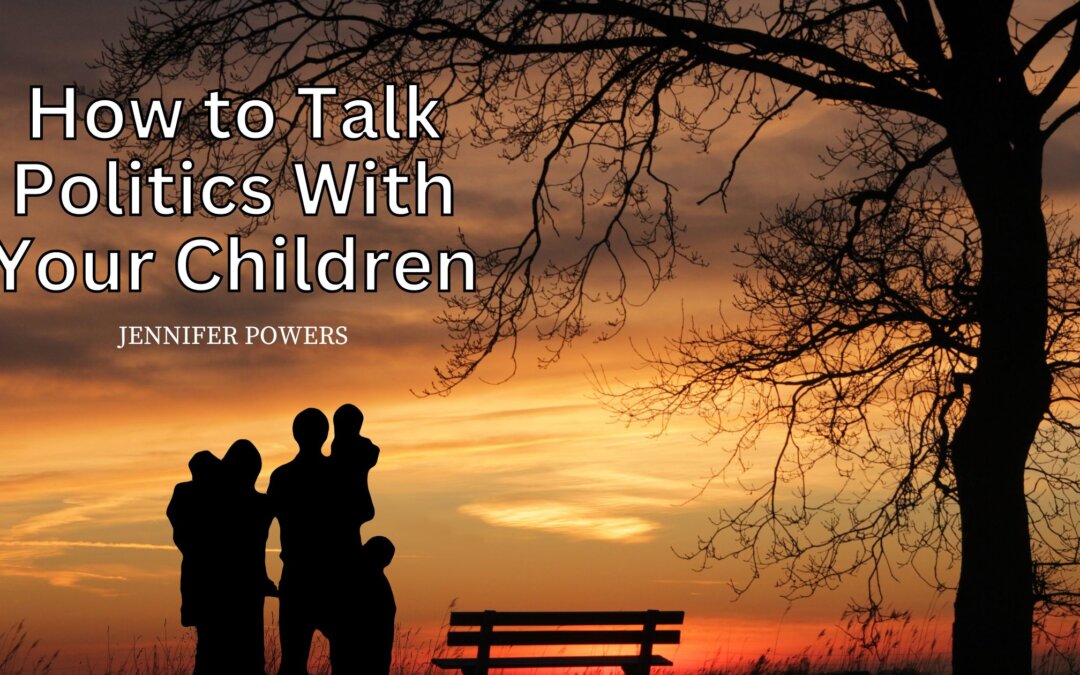Children are exposed to political news, discussions, and debates in today’s interconnected world more than ever before. From dinner table conversations to social media, politics is an unavoidable topic. As such, guiding our children to navigate the intricate landscape of political discourse is essential. Engaging them in informed, respectful dialogue fosters critical thinking and citizenship skills.
Historically, politics was seen as an adult domain, shielded from young ears. However, with the rise of the internet, 24/7 news cycles, and social media, children are increasingly becoming aware of global issues. Young activists have taken the forefront in pressing issues like climate change and racial justice. Additionally, schools incorporate current events into curricula, meaning children aren’t just passive receivers of political information. Therefore, parents must guide children to discern facts from fiction and engage in constructive debates.
To foster this understanding, parents must rise to the challenge. The benefits are numerous: it promotes an early interest in civic duties, nurtures empathy, and helps children develop their perspectives. However, parents must approach the topic strategically to communicate about politics effectively.
Start Early and Keep it Age-Appropriate:
Children, even young, are curious about the world around them. While they might not understand intricate policies, they can grasp basic concepts of fairness, leadership, and community. Parents can use daily occurrences, like disagreements between friends, to introduce political concepts like negotiation and compromise.
Kids might be ready to understand more specific issues like environmental conservation by kindergarten. As they age, discussions can evolve into more complex topics such as economic policies or international relations. Books, documentaries, or even cartoons can assist in explaining these themes. Always ensure that the information is age-appropriate and does not overwhelm them. Encourage questions and make it an interactive learning experience. Most importantly, reiterate that it’s okay not to have all the answers, but it’s essential to keep exploring and learning.
Promote Critical Thinking:
Critical thinking skills are vital in deciphering the world of politics. Children should be taught to question sources, understand biases, and evaluate the credibility of information. When discussing a political event, ask your child open-ended questions like, “What do you think about this?” or “Why do you believe that’s the case?”
Regularly challenge their views, not to invalidate them, but to encourage more profound analysis. Drawing parallels between historical events and current situations can be a helpful tool. For example, compare past civil rights movements with contemporary ones to offer perspective. This exercise helps kids recognize patterns, connect, and understand the broader context. By fostering a habit of critical analysis, children will grow into discerning adults, able to navigate the complexities of political rhetoric and propaganda.
Model Respectful Discussion:
One of the most potent lessons parents can impart is modeling behavior. In politics, this means demonstrating how to engage in discussions respectfully. It’s natural for emotions to run high, especially when discussing divisive topics. However, showing kids that disagreements can exist without devolving into hostility is vital.
Emphasize the importance of listening. Often, we listen to reply rather than to understand. Teach children to hear different perspectives, even if they disagree. Reinforce the idea that a person’s worth isn’t determined by their political stance. Role-playing can be a proper technique here. Parents and children can switch sides on an issue, defending a view they might not personally hold. This fosters empathy and an understanding that multifaceted issues rarely have one “right” answer.
In an age where politics permeates every corner of our lives, shielding children from it is impractical and a missed educational opportunity. Parents can arm children with tools to think critically, empathize with diverse perspectives, and engage in informed civil discourse by discussing politics. By instilling these values early on, we raise informed citizens and compassionate individuals, ensuring a brighter and more harmonious future for all.
